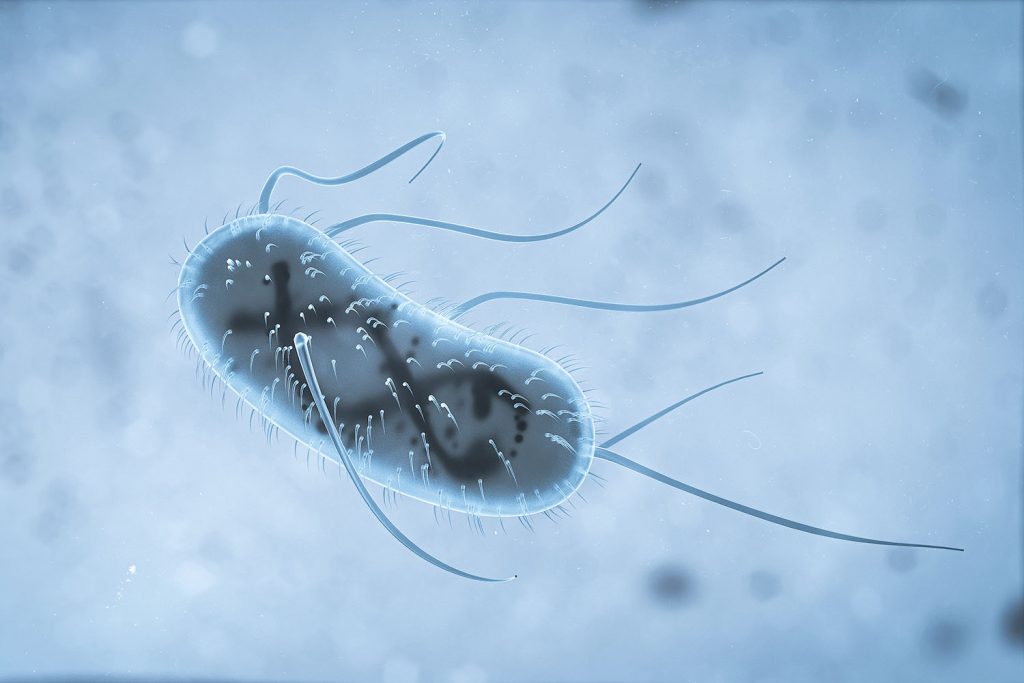30 May Effect of heat stress on the intestinal microbiota

With the arrival of Summer, environmental temperature and humidity increase, and heat stress becomes a challenge for many farms.
Gut flora is crucial for animal health. Intestinal microbiota influences the health of the host by participating in its metabolism, regulating its immune system, maintaining gastrointestinal homeostasis, affecting brain function and even its behavior. Dysbiosis leads to the development of digestive diseases, resulting in economic losses.
Many studies prove that heat stress impairs many productive parameters, such as weight gain, egg production rate and feed conversion. Heat stress also changes the metabolic response and the immune function, which may be related to the influence of high temperatures on the intestinal microbiota and the intestinal integrity.
Effects of heat stress on the composition of intestinal microbiome
Heat stress significantly reduces the count of species that are dominant in normal conditions: both the Firmicutes – a group of Gram positive bacteria – and the genera Lactobacillus and Bifidobacteria decrease significantly. The reduction in Lactobacillus and Bifidobacteria is relevant for gut health because these two genera protect against the invasion of pathogens thanks to a mechanism called competitive exclusion.
On the other hand, heat stress increases the count of E. coli and Salmonella sp. As heat stress is often associated to a failure of the gut barrier, the animal is put at risk of general infections.
Effects of heat stress on intestinal microbial metabolites
Short-chain fatty acids (butyric, acetic and propionic acid) are the result of the fermentation of fiber by gut bacteria.
Studies have proved that short-chain fatty acids:
- Promote the secretion of intestinal mucus in monogastrics
- Induce B cells to differentiate into plasma cells and to secrete immunoglobulin A, inhibit intestinal inflammation
- Reduce the production of certain inflammatory factors
Heat stress inhibits the growth of Ruminococcus faecis, Clostridium butyricum, Clostridium leptum and Phascolarctobacterium, which in turn leads to the decrease of the concentration of short-chain fatty acids in the gut.
Plant extracts improve the status of gut flora
Some plant extracts have prebiotic functions and selectively promote the growth of symbiotic beneficial bacteria. In example, polysaccharides from Pueraria significantly boost the diversity of species, reduce the count of pathogenic bacteria and increase count the beneficial bacteria genus. Chicory extract is another prebiotics that promotes the growth of Lactobacillus sp.
On the other hand, garlic oil increases the relative abundance of Phascolarctobacterium sp, which produces short chain fatty acids, while pure allicin inhibits E. coli.
In addition, plant extracts improve the digestion, absorption and utilization of feed by regulating the expression of absorption-related proteins in the digestive system.
Ruby Yu, Research and Development
Products of choice
PlusBreathe© contains essential oils with natural antiseptic, antioxidant, expectorant and mucolytic activity. It has a refreshing taste.
It is indicated to improve the functioning of the respiratory system and to mitigate heat stress in birds, ruminants, pigs and rabbits of all ages. It can also be nebulized in the farm environment.
GrowthPlus© is added to feed to maintain and improve digestive health. It is formulated with synergistic ingredients:
- Bactericidal and fungicidal plant extracts, combined with organic acids for better effectiveness, that reduce the number of pathogenic microbes in the digestive system.
- Plant extracts with prebiotic effect, that promote the growth of beneficial bacteria in the gut.
- Immunostimulant and antioxidant plant extracts.
- Silicates with mycotoxin binding function.
It is especially useful in cases of gizzard diseases, necrotic enteritis, feed passage and other enteritis. It is also used as a natural growth promoter and to replace antibiotic growth promoters.
PlusProtect Digestive© is intended for digestive health in birds and rabbits of all ages. It is formulated with synergistic ingredients:
- Essential oils with bactericidal and fungicidal activity
- Plant extracts with prebiotic effect.
- Immunostimulant and antioxidant essential oils
PlusProtect Digestive© is useful to improve gut health in the following cases:
- Candidiasis in beak, crop and gizzard
- Bacterial infections in gizzard. In severe cases, it is better to give together with our PlusBind© line (mycotoxin binders)
- Bacterial infections in the intestines (necrotic enteritis; E.coli; Salmonella sp.)
- General digestive imbalances, such as feed passage.
Do not miss any of our articles!
Subscribe to our monthly newsletter

Certain health statements may not be applicable in your region.

